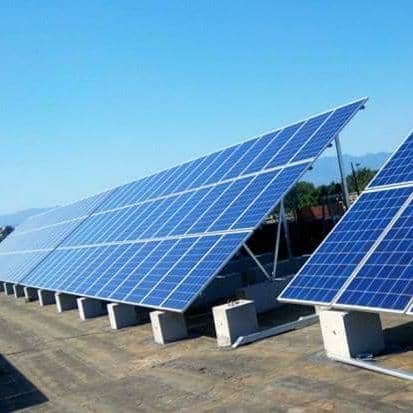
Mining & Trade News
Malawi Online News
Top Stories
Energy
Solar power transforming homes and industries
December 13, 2021 / Chisomo Phiri

With an average of 3,000 hours of sunshine per year, Malawi has high solar radiance potential to compliment the country’s available green energy portfolio, such as hydro-power, in improving the lives of its people and stimulating economic activities.
With this potential in mind, PowerPlus Control Systems, a local company providing solar energy solutions, says it is set to transform the lives of people, especially those not connected to the national power grid.
Less than 10 percent of Malawi’s population of 18 million people is connected to the electrical grid, which makes the country’s power sector the most constrained in the sub-Saharan region.
Jonathan Mlauzi, the founder and director at PowerPlus Control Systems says despite making inroads in providing solar energy answers to the country, whose economy is agro-based, many people are still not aware how much solar can transform their lives.
He explains that currently his company is running the “Go4Solar, Go-Green, Save Bills” which encourages farmers to start solar irrigation and fish farming systems for high productivity and cheaper means of meeting the Malawi Vision 2063.
Mlauzi adds that the campaign also targets people and institutions connected to the national power grid such as hotels, schools, hospitals, banks among others to install solar power backups instead of diesel powered generators, which pollute the environment.
“It is possible to integrate solar and grid (Escom) power in a house and then choose which to prioritize,” says Mlauzi.
PowerPlus Control Systems is now engaged in scaling up the Nkhotakota Solar Energy project, a model for future private Investment into the solar sector. Under this project, the company will be supplying cheaper solar powered equipment across the country.
So far, PowerPlus Control Systems has installed solar submersible pump system to promote irrigation at Kalota Sugarcane Farm in Salima and Mtakatataka Police Training School in Dedza. It has also supplied domestic and commercial solar power systems as well as backup systems across the nation including installing 3× 60KW power backup UPSs in the Malawi Electoral Commission (MEC) data centres.
“We are also expecting to install solar Irrigation systems for cannabis farms,” says Mlauzi.
Meanwhile, the company says the COVID-19 pandemic has brought logistical challenges as it affected the importations of goods.
“It now takes several months to order our goods from abroad than was the case before the pandemic,” he says adding that the devaluation of Kwacha is another challenge.
However, Mlauzi is quick to point out that despite the challenges, PowerPlus Control Systems plans to introduce swappable electric batteries and scooters.
“People in the country have started owning hybrid bikes and cars but most do not know that these also use lithium batteries, which we will soon start supplying to help customers save on fuel consumption,” says Mlauzi, who is also an engineer.
He urges Malawians to embrace solar energy as it is now the “fuel to drive the economy of the country” when other sources of energy have proved unreliable and brought down industrial productivity.
PowerPlus Control Systems designs, supplies and install In/Off Grid solar systems, power backup systems, solar pumps, irrigation systems, Uninterrupted Power Supply (UPS) and data centre power.































